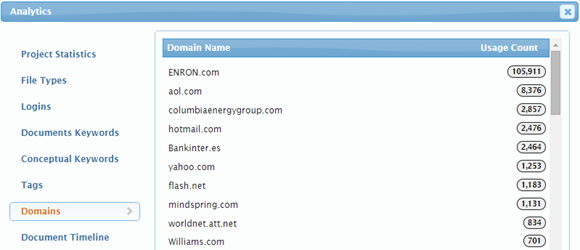Vacation Case Law Pop Quiz #2!: eDiscovery Case Law

I’m out of the office this week, taking the kiddos on a family vacation (can you guess where?). Instead of going dark for the week (which we almost never do), I decided to use the opportunity to give you a chance to catch up on cases we’ve covered so far this year with a couple of case law pop quizzes, sandwiched around a popular post from the past that you may have missed.
If you’re reading the blog each day, these questions should be easy! If not, we’ve provided a link to the post with the answer. We’re that nice. Test your knowledge! Tomorrow, we’ll post the answers to this second vacation case law pop quiz for those who don’t know and didn’t look them up.
1. Which case did the judge refer to as “Da Silva Moore Revisited”?
A. Rio Tinto Plc v. Vale S.A.
B. Comprehensive Addiction Treatment Center, Inc. v. Leslea
C. Burdette v. Panola County
D. In Re: Lithium Ion Batteries Antitrust Litigation
A. Rio Tinto Plc v. Vale S.A.
B. Comprehensive Addiction Treatment Center, Inc. v. Leslea
C. Burdette v. Panola County
D. In Re: Lithium Ion Batteries Antitrust Litigation
A. Rio Tinto Plc v. Vale S.A.
B. Comprehensive Addiction Treatment Center, Inc. v. Leslea
C. Burdette v. Panola County
D. In Re: Lithium Ion Batteries Antitrust Litigation
4. Which case(s) cited the Da Silva Moore case?
A. Rio Tinto Plc v. Vale S.A.
B. In Re: Lithium Ion Batteries Antitrust Litigation
C. Both cited Da Silva Moore
D. Neither cited Da Silva Moore
A. Lunkenheimer Co. v. Tyco Flow Control Pacific Party Ltd.
B. Colosi v. Jones Lang LaSalle Americas, Inc.
C. Harrell v. Pathmark et al.
D. Engineered Abrasives, Inc. v. American Machine Products & Service, Inc.
A. Lunkenheimer Co. v. Tyco Flow Control Pacific Party Ltd.
B. Colosi v. Jones Lang LaSalle Americas, Inc.
C. Harrell v. Pathmark et al.
D. Engineered Abrasives, Inc. v. American Machine Products & Service, Inc.
A. Lunkenheimer Co. v. Tyco Flow Control Pacific Party Ltd.
B. Colosi v. Jones Lang LaSalle Americas, Inc.
C. Harrell v. Pathmark et al.
D. Engineered Abrasives, Inc. v. American Machine Products & Service, Inc.
8. In which case was the defendant sanctioned for discarding a relevant computer?
A. Harrell v. Pathmark et al.
B. Engineered Abrasives, Inc. v. American Machine Products & Service, Inc.
C. Fox v. Leland Volunteer Fire/Rescue Dep’t Inc.
D. Grady v. Brodersen
A. Harrell v. Pathmark et al.
B. Engineered Abrasives, Inc. v. American Machine Products & Service, Inc.
C. Fox v. Leland Volunteer Fire/Rescue Dep’t Inc.
D. Grady v. Brodersen
A. Harrell v. Pathmark et al.
B. Engineered Abrasives, Inc. v. American Machine Products & Service, Inc.
C. Fox v. Leland Volunteer Fire/Rescue Dep’t Inc.
D. Grady v. Brodersen
As always, please let us know if you have questions or comments, or if there are specific topics you’d like to see covered.
Disclaimer: The views represented herein are exclusively the views of the author, and do not necessarily represent the views held by CloudNine. eDiscovery Daily is made available by CloudNine solely for educational purposes to provide general information about general eDiscovery principles and not to provide specific legal advice applicable to any particular circumstance. eDiscovery Daily should not be used as a substitute for competent legal advice from a lawyer you have retained and who has agreed to represent you.





